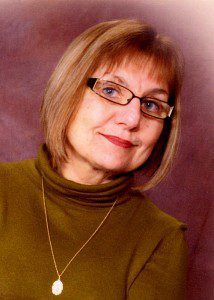

A woman in her 80s with advanced dementia is readmitted to the hospital for the second time in one month. She is disoriented and anxious due to medical issues and a change of environment. Lacking proper support, her family couldn’t establish a coordinated care plan that may have prevented this hospital stay.
Dementia-related risk for re-hospitalization is high. More effective care transition and teamwork would provide medical management, safety, dignity, and continuity for a person living with advanced dementia, as well as support for his or her family.
This year’s Summer Institute on Mental Disorders and the Older Adult will tackle such care challenges of advanced dementia. The Institute, July 26-27 at the UW Pyle Center, will focus on medical care transitions, behavioral and psychological symptoms of dementia, decisional capacity, eating and swallowing, sleep disorders, family conflict, palliative care, and cultural and spiritual needs of the person living with dementia.
“Professional development like this, addressing challenges in providing care at mid- and late-stage dementia, just doesn’t exist,” said Suzanna Waters Castillo, director of Aging and Long-Term Care at University of Wisconsin–Madison Continuing Studies. “We will provide the most current, evidence-based information on the topic.”
The conference will offer new thinking and innovative strategies for care managers, social workers, nurses, physical therapists, occupational therapists, psychologists, physicians, physicians’ assistants, speech therapists, and others who work with older adults.
Ambiguous loss
The Summer Institute will feature experts working in multiple disciplines, illustrating a biopsychosocial approach—taking into account biological, psychological, and social factors and their complex interactions in health care. Speakers will offer case studies, roleplaying, and active learning.
“We’re bringing together outstanding UW–Madison faculty in one place for this conference,” Waters Castillo said.
In addition, keynote speaker Kay Adams, a licensed clinical social worker from Kaiser Permanente in Denver, will present a rare workshop on “ambiguous loss.” She’ll help professionals navigate that uncertain hurt that older adults feel when facing dementia in later phases. Adams is experienced at working with patients who have dementia and families in need of palliative care.
A novel certification
At the Summer Institute, participants will get an introduction to the new Advanced Dementia Care Specialist Certificate, debuting in the fall of 2018 at Continuing Studies.
“This is one of perhaps two programs in the country where a certificate in mid- to late-stage care of older adults is offered,” Waters Castillo said. “We are responding to workforce challenges and building beyond the basics to look at a novel care coordination model.”
Summer Institute topics will carry over to eight daylong workshops for the certificate program, providing an in-depth look at issues in mid- to late-stage dementia.
Waters Castillo added, “Via professional development, we’re trying to create and carry out a vision for the highest-quality care for older adults living with dementia in the state of Wisconsin and the region.”
Learn more at the Summer Institute on Mental Health Disorders and the Older Adult contacting Suzanna Waters Castillo, PhD, MSSW, at suzanna.castillo@wisc.edu, 608-263-3174 or viewing other mental health classes.